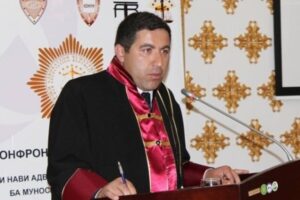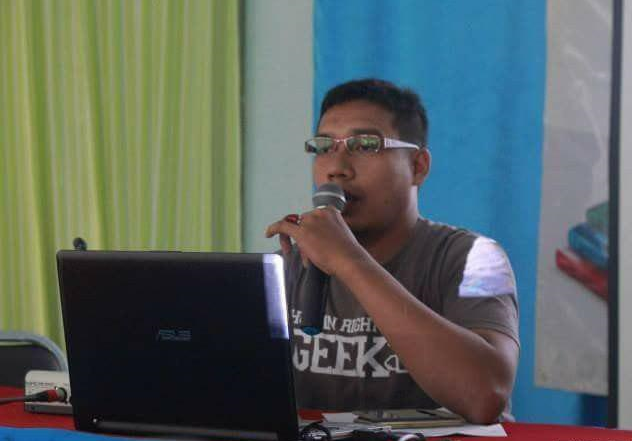
Feb 15, 2018 | News
Thailand should immediately cease misusing criminal and civil defamation laws to legally harass victims, human rights defenders and journalists who raise allegations of torture or other ill-treatment, the ICJ said today.
Yesterday, the Director of the Internal Operations Security Command (ISOC) Region 4, Lt. Gen. Piyawat Nakwanich, reportedly authorized Lt. Col. Seathtasit Kaewkumuang to lodge defamation complaints against Isma-ae Tae, a founder of Patani Human Rights Organization (HAP).
ISOC is responsible for security operations in Thailand’s deep South.
“It is astonishing that after all of the Government’s repeated commitments to address allegations of torture and protect victims and human rights defenders, ISOC is now misusing the justice system to legally harass an alleged victim of torture,” said Kingsley Abbott, the ICJ’s Senior International Legal Adviser for Southeast Asia.
“Thailand should immediately stop these defamation complaints against Isma-ae Tae and ensure an investigation that meets international law and standards is conducted into all allegations of torture or other ill-treatment without delay,” he added.
The accusations relate to a TV program entitled “Policy by People” that aired on the Thai PBS channel on 5 February 2018 in which Isma-ae Tae described being tortured and ill-treated by Thai soldiers when he was a student in Yala, located in Thailand’s restive deep South.
Criminal defamation in Thailand carries a maximum penalty of two years imprisonment and a fine of up to 200,000 Baht (USD $6,300).
The imposition of harsh penalties such as imprisonment or large fines under these laws has the effect of discouraging victims of torture or other ill-treatment from coming forward to seek the remedies and reparations to which they are entitled under international human rights law binding on Thailand, the ICJ said.
The complaints were made against the backdrop of a ruling by the Supreme Administrative Court on 19 October 2016, which ordered the Royal Thai Army and the Defence Ministry to pay 305,000 baht (USD $9,700) compensation to Isma-ae Tae, after it found he was “physically assaulted” during detention and had been illegally detained for nine days – exceeding the limit of seven days permitted under Martial Law Act B.E. 2457 (1914) (Martial Law).
“Even more astonishing is that a superior Thai court has already found that the military physically assaulted Isma-ae Tae and awarded him compensation, which only serves to highlight the injustice of these complaints”, added Abbott.
In 2008, Isma-ae Tae was arrested pursuant to Martial Law and allegedly tortured in order to purportedly extract a confession in relation to a national security case. To date, no perpetrators have been brought to justice.
Contact
Kingsley Abbott, Senior International Legal Adviser, ICJ Asia Pacific Programme, t: +66 94 470 1345, e: kingley.abbott@icj.org
Thailand-Isma-ae Tae defamation case-News-Press releases-2018-ENG (full story with additional information, in PDF)
Thailand-Isma-ae Tae defamation case-News-Press releases-2018-THA (Thai version of full sory, in PDF)
Read also
Thailand: ICJ welcomes decision to end proceedings against human rights defenders who raised allegations of torture
Thailand: ICJ welcomes dropping of complaints against human rights defenders but calls for investigation into torture
Thailand: stop use of defamation charges against human rights defenders seeking accountability for torture
Thailand: immediately withdraw criminal complaints against human rights defenders
Further reading on the Draft Prevention and Suppression of Torture and Enforced Disappearance Act
UN Committee against Torture: ICJ and TLHR’s joint submission on Thailand
Thailand: ICJ, Amnesty advise changes to proposed legislation on torture and enforced disappearances
Thailand: ICJ commemorates international day in support of victims of enforced disappearances
Thailand: pass legislation criminalizing enforced disappearance, torture without further delay
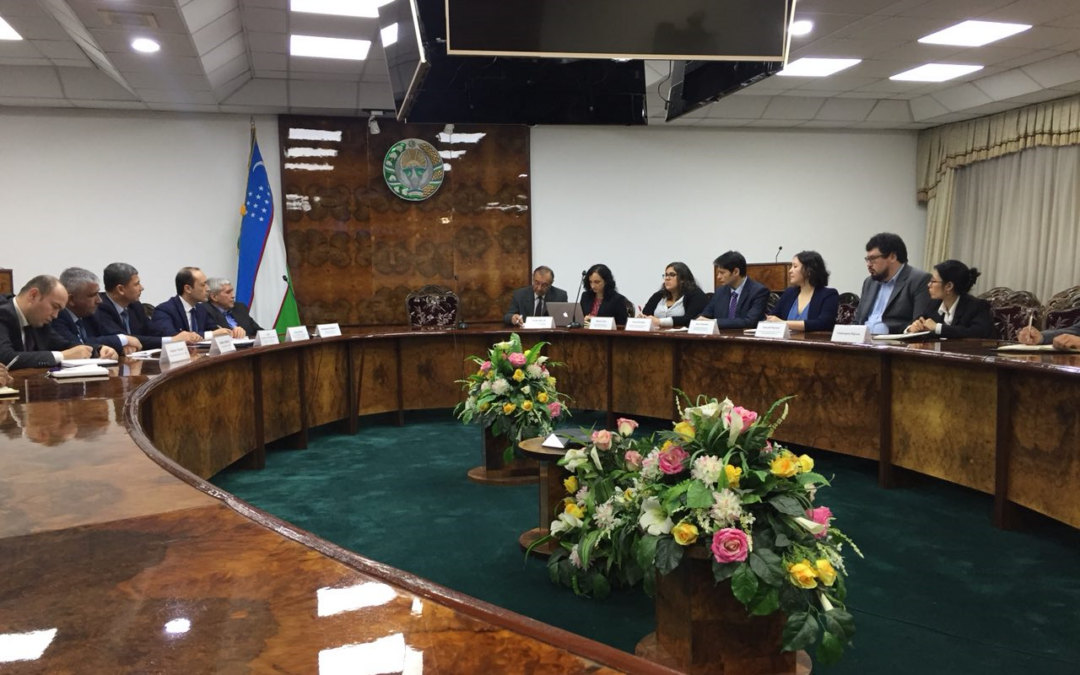
Feb 14, 2018 | News
From 12 to 14 February, representatives the ICJ visited Uzbekistan as the first step in a new programme of work on access to justice in the area of economic, social and cultural rights.
During the visit, ICJ representatives met with a number of State institutions relevant to this topic, including the Supreme Court, the High Judicial Council, the Ministry of Justice, the Bar Association of Uzbekistan as well as the Commission of the European Union Technical Assistance Programme National Coordination Unit (NCU).
The ICJ also met with the Delegation of the European Union to Uzbekistan.
The visit allowed the ICJ to provide information and begin plans for its work to advance access to justice for the protection of economic, social and cultural rights in Uzbekistan in the framework of the ACCESS project (“Advancing Civil Society in promoting ESCR Standards”), supported by the Delegation of the European Union to Uzbekistan.
During this visit, the ICJ signed a Memorandum of Understanding with the Research Centre for the Study of Justice under the Supreme Judicial Council of the Republic of Uzbekistan, with which it held an international seminar on Comparative Approaches to Selection, Appointment and Evaluation of Judges in September 2017.
The memorandum will serve as a platform for furthering ICJ’s work with the judiciary in Uzbekistan within the ACCESS project and other initiatives.
The ICJ is grateful to all those who met with the ICJ representatives in Tashkent.
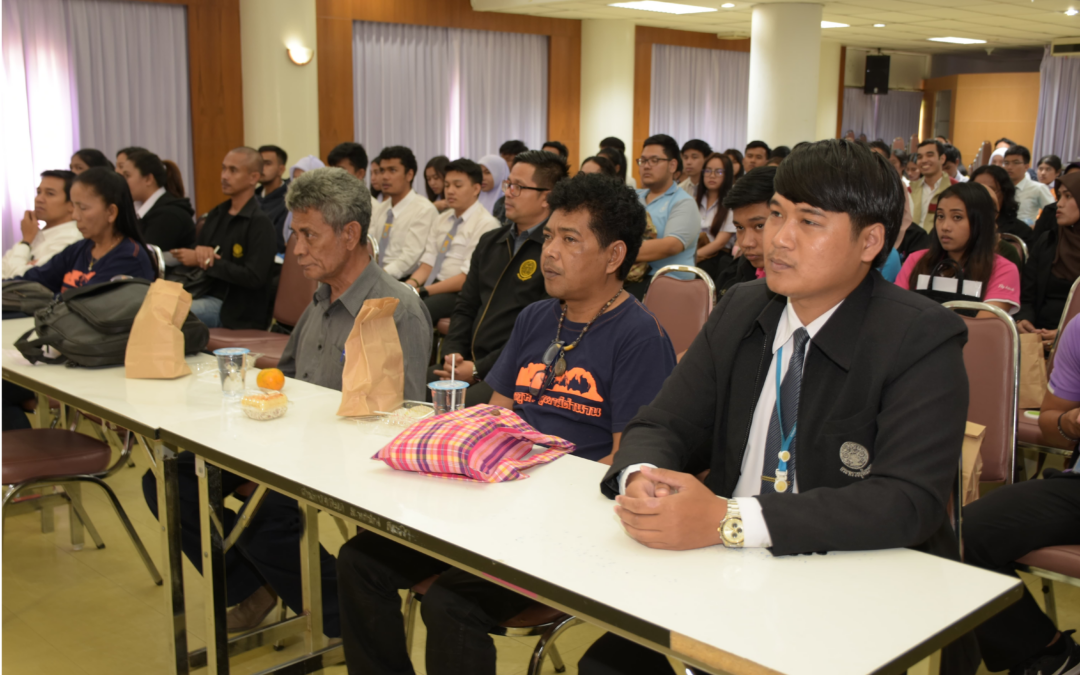
Feb 14, 2018 | News
Today, the ICJ addressed an academic seminar on the topic of “Public interest and the anti-strategic lawsuit against public participation (SLAPP)”.
It was organized by Thaksin University’s Faculty of Law, in collaboration with the Embassy of Canada in Bangkok, the Thai Ministry of Justice’s Justice Office, and the Community Resources Centre Foundation (CRC).
Participants in the seminar, which was held at Thaksin University, included more than 50 undergraduate students and lecturers from Thaksin University, around 20 villagers from affected communities, and approximately 20 justice officers from the Justice Office of Songkhla Province, Ministry of Justice.
Sanhawan Srisod, ICJ National Legal Adviser, delivered an introduction to basic international human rights law on the rights to freedom of expression, association, and peaceful assembly, and Thailand’s international legal obligations in relation to these rights.
Other speakers at the Workshop were Ms. Jantima Thanasawangkul, Special Prosecutor, Department of Legal Aid and Civil Rights Protection, Office of the Attorney General; Ms. Sor.Rattanamanee Polkla, Lawyer, Community Resources Centre Foundation; and Mr. Tawan Puakpong, Justice Office of Songkhla Province, Ministry of Justice.
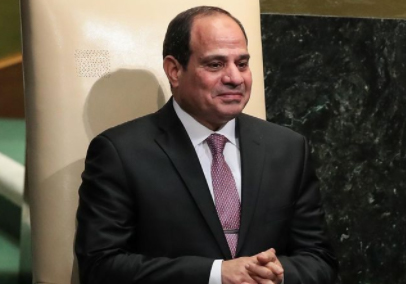
Feb 14, 2018 | Communiqués de presse, Nouvelles
Le gouvernement égyptien a piétiné les conditions minimales pour que des élections libres et équitables aient lieu les 26-28 mars 2018 lors du vote pour la présidence, ont annoncé aujourd’hui la CIJ et treize organisations internationales et régionales de défense des droits humains.
Le gouvernement du président Abdel Fattah al-Sissi ne cesse d’étouffer les libertés fondamentales. Il a également arrêté des candidats potentiels et effectué des rafles parmi leurs partisans.
« Les alliés de l’Egypte devraient aujourd’hui dénoncer publiquement la mascarade que sont ces élections, plutôt que de continuer à offrir un soutien inconditionnel à un gouvernement présidant à la pire crise des droits humains que le pays ait connue depuis des décennies », ont déclaré les organisations.
Les États-Unis, l’Union européenne et les États européens, qui fournissent une aide financière substantielle au gouvernement égyptien, devraient systématiquement intégrer les droits humains dans leurs relations avec l’Égypte.
Ces pays devraient mettre fin à toute assistance en matière de sécurité pouvant être utilisée dans le cadre de la répression interne, et axer leurs efforts sur l’amélioration concrète des droits fondamentaux.
La répression en amont de l’élection présidentielle égyptienne est une escalade substantielle dans un environnement politique qui nie le droit des individus à la participation politique et à la liberté d’expression, d’association, et de rassemblement pacifique.
Les autorités égyptiennes devraient immédiatement libérer toutes les personnes arrêtées pour avoir participé à des campagnes politiques ou avoir déclaré leur intention de se présenter aux élections présidentielles, appellent les organisations.
Les autorités ont successivement éliminé les principaux concurrents ayant annoncé leur intention de se présenter à la présidentielle. Ils ont ainsi arrêté deux candidats potentiels, le général à la retraite Sami Anan et le colonel Ahmed Konsowa.
Un troisième candidat potentiel, Ahmed Shafiq, ancien Premier ministre et commandant de l’armée de l’air, aurait été placé en résidence surveillée non déclarée dans un hôtel jusqu’à ce qu’il se retire de la course.
Deux autres candidats potentiels, l’avocat des droits humains Khaled Ali ainsi qu’un ancien membre du parlement, Mohamed Anwar al-Sadat, ont fait marche arrière mettant en cause l’environnement répressif, la sécurité de leurs partisans et les manipulations gouvernementales.
Le seul candidat actuel contre le président al-Sissi est Moussa Mostafa Moussa, le chef du parti Al-Ghad, qui soutient le gouvernement. Il a enregistré sa candidature le 29 janvier, dernier jour possible, après des efforts des députés pro-gouvernementaux pour le convaincre de se présenter.
Jusqu’à la veille de sa candidature, il était membre d’une campagne soutenant al-Sissi pour un second mandat. Dans ce contexte, le droit de tout citoyen à se présenter librement et à voter lors d’élections traduisant la libre expression de la volonté des électeurs, semble dénué de sens.
Ces actions gouvernementales contreviennent à la Constitution égyptienne et constituent une violation manifeste de ses obligations et engagements internationaux, notamment du Pacte international relatif aux droits civils et politiques (PIDCP), de la Charte africaine des droits de l’homme et des peuples (CADHP) et de la Déclaration de 2002 de l’Union africaine sur les principes régissant les élections démocratiques en Afrique.
L’article 25 du PIDCP et l’article III de la Déclaration de l’Union africaine lient la participation politique, en tant qu’électeur et candidat, aux libertés de réunion, d’expression et d’association.
Un manuel de l’Union européenne pour les observations électorales, détaillant les normes pour des élections équitables, rappelle que ce sont des droits « sans lesquels [les élections] ne peuvent pas être exercées de manière significative ».
L’actuel climat de représailles contre les voix dissidentes et la répression croissante à l’encontre des défenseurs des droits humains et des organisations indépendantes de défense des droits ont rendu extrêmement difficile l’observation efficace des élections par des organisations nationales et étrangères.
Les médias ont indiqué que le nombre d’organisations ayant obtenu l’autorisation de surveiller les élections était inférieur de 44% à celui de la dernière élection présidentielle en 2014. Le nombre de demandes a en général également diminué.
Plusieurs partis d’opposition ont appelé au boycott des élections. Un jour plus tard, le Président al-Sissi a menacé d’utiliser la force, y compris l’armée, contre ceux qui minent la « stabilité et la sécurité égyptiennes ».
Le 6 février, le parquet général a ordonné une enquête visant 13 des principaux dirigeants de l’opposition, les accusant d’appeler à « renverser le régime au pouvoir ».
« Sept ans après le soulèvement de 2011 en Egypte, le gouvernement se moque des droits fondamentaux pour lesquels les manifestants se sont battus, » ont déclaré les organisations.
Et d’ajouter: « Le gouvernement égyptien prétend être dans une “transition démocratique” mais s’en éloigne à chaque élection. »
Contact
Said Benarbia (anglais, français, arabe) : t: + 41-22-979-3817 ; ou e: said.benarbia(a)icj.org
Organisations signataires :
Cairo Institute for Human Rights Studies
CIVICUS “World Alliance for Citizen Participation”
CNCD-11.11.11
Commission internationale de juristes
EuroMed Droits
Fédération internationale des droits de l’homme (FIDH)
Human Rights First
Human Rights Watch
International Service for Human Rights
Organisation mondiale contre la torture (OMCT)
Project on Middle East Democracy
Reporters sans frontières (RSF)
Robert F. Kennedy Human Rights
Solidar
Egypte-Election présidentielle dans un contexte ni libre ni équitable-Communiqué de presse-2018-FRA (Communiqué de presse complet en PDF)
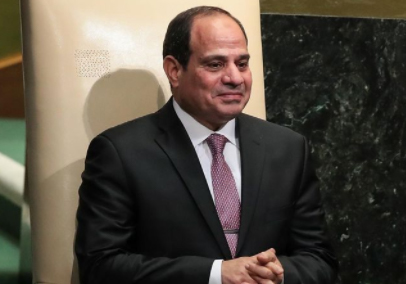
Feb 13, 2018 | News
The Egyptian government has trampled over even the minimum requirements for free and fair elections for the planned March 26-28, 2018 vote for president, the ICJ and thirteen international and regional rights organizations said today.
The government of President Abdel Fattah al-Sisi (photo) has relentlessly stifled basic freedoms and arrested potential candidates and rounded up their supporters.
“Egypt’s allies should speak out publicly now to denounce these farcical elections, rather than continue with largely unquestioning support for a government presiding over the country’s worst human rights crisis in decades,” the groups said.
The United States, European Union, and European states, which provide substantial financial assistance to the Egyptian government, should consistently integrate human rights into their relations with Egypt.
These countries should halt all security assistance that could be used in internal repression and focus aid on ensuring concrete improvements to protect basic rights.
The repression in advance of Egypt’s presidential election is a substantial escalation in a political environment that denies people’s rights to political participation and to freedom of expression, association, and peaceful assembly.
The Egyptian authorities should immediately release all those arrested for joining political campaigns or stating their intention to run as presidential candidates in the elections, the groups said.
The authorities have successively eliminated key challengers who announced their intention to run for president. They have arrested two potential candidates, retired Lt. Gen. Sami Anan and Col. Ahmed Konsowa.
A third potential candidate, Ahmed Shafik, a former prime minister and air force commander, apparently was placed under undeclared house arrest in a hotel until he withdrew from the race.
Two other key potential candidates, the human rights lawyer Khaled Ali and a former parliament member, Mohamed Anwar al-Sadat, backtracked on formally registering, citing the repressive environment, concerns over the safety of their supporters, and government manipulation.
The only current candidate running against al-Sisi is Mousa Mostafa Mousa, the leader of the Al-Ghad Party, which supports the government. He registered his candidacy on January 29, the last possible day, after efforts from pro-government parliament members to convince him to run.
Until the day before he registered his candidacy, he was a member of a campaign supporting al-Sisi for a second term. In this context, the right of every citizen to freely stand and vote in elections that reflect the free expression of the will of the electors appears meaningless.
These government actions are in contravention to Egypt’s Constitution and a clear violation of its international obligations and commitments, including the International Covenant on Civil and Political Rights (ICCPR), the African Charter on Human and Peoples’ Rights (ACHPR), and the 2002 African Union Declaration on the Principles Governing Democratic Elections in Africa. Article 25 of the ICCPR and Article III of the African Union declaration link political participation, as a voter and as a candidate, to the freedoms of assembly, expression, and association.
An EU handbook for elections observations, detailing standards of fair elections, says that these are rights “without which it [elections] cannot be meaningfully exercised.”
The current atmosphere of retaliation against dissenting voices and the increasing crackdown against human rights defenders and independent rights organizations have made effective monitoring of the elections extremely difficult for domestic and foreign organizations.
Media reports have said that the number of organizations that were granted permission to monitor the elections was 44 percent fewer than in the last presidential election in 2014 and that the number of requests, in general, has gone down.
Several opposition parties called for boycotting the elections. A day later al-Sisi threatened to use force, including the army, against those who undermine “Egypt’s stability and security.”
On February 6, the Prosecutor-General’s Office ordered an investigation against 13 of the leading opposition figures who called for a boycott, accusing them of calling for “overthrowing the ruling regime.”
“Seven years after Egypt’s 2011 uprising, the government has made a mockery of the basic rights for which protesters fought,” the groups said. “Egypt’s government claims to be in a ‘democratic transition’ but move further away with every election.”
Contact
Said Benarbia, Director of ICJ’s Middle East and North Africa Programme, t: +41-22-979-3817 ; e: said.benarbia(a)icj.org.
Signatories
Cairo Institute for Human Rights Studies
CIVICUS “World Alliance for Citizen Participation”
CNCD-11.11.11
EuroMed Rights “The Euro-Mediterranean Human Rights Network”
Human Rights First
Human Rights Watch
International Commission of Jurists
International Federation for Human Rights (FIDH)
International Service for Human Rights
Project on Middle East Democracy
Reporters Without Borders (RSF)
Robert F. Kennedy Human Rights
Solidar
World Organisation Against Torture (OMCT)
Egypt-Presidential vote neither free nor fair-Presse release-2018-ENG (Full Press release in English, PDF)
Egypte-Election présidentielle dans un contexte ni libre ni équitable-Communiqué de presse-2018-FRA (Full Press release in French, PDF)
Egypt-Presidential vote neither free nor fair-Presse release-2018-ARA (Full Press Release in Arabic, PDF)








